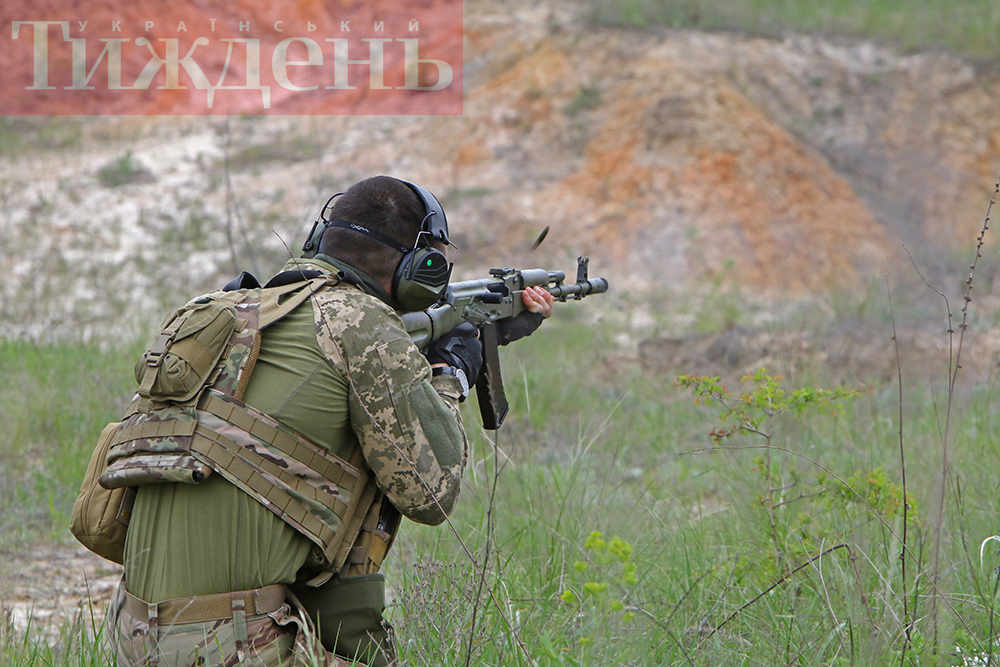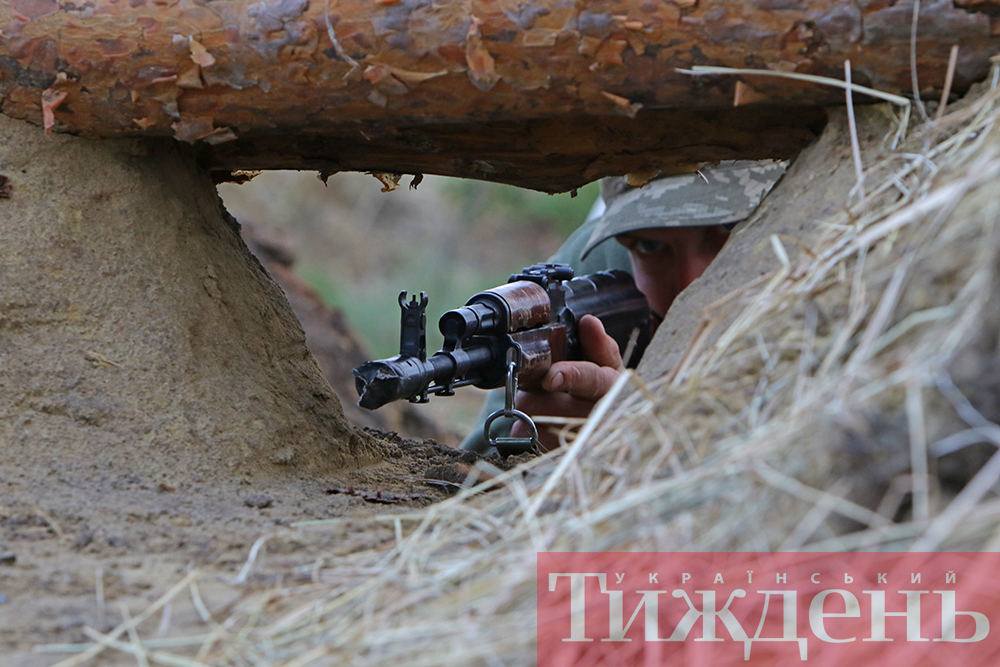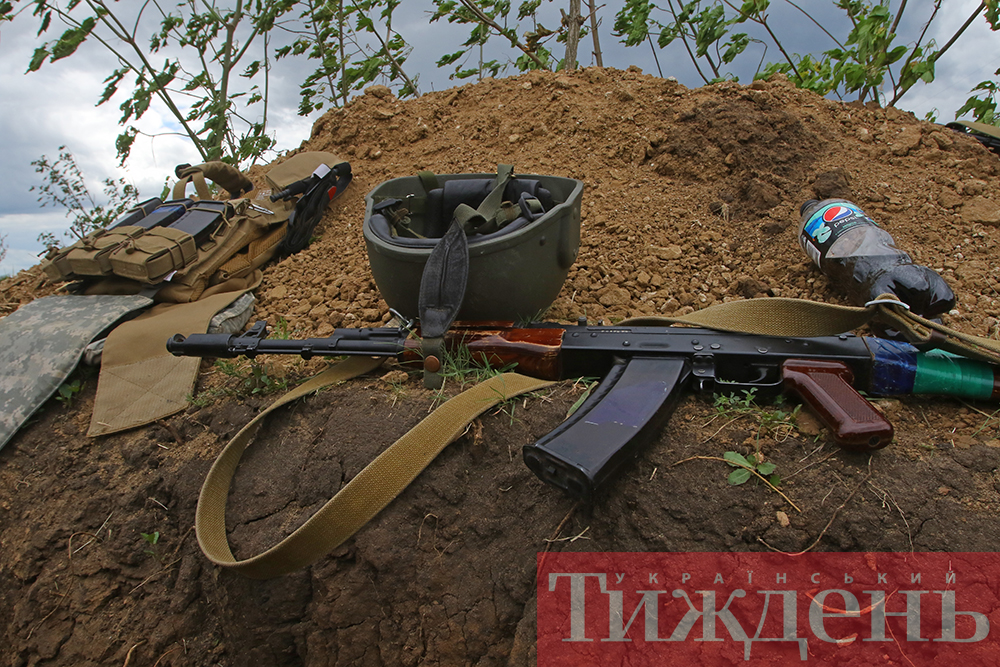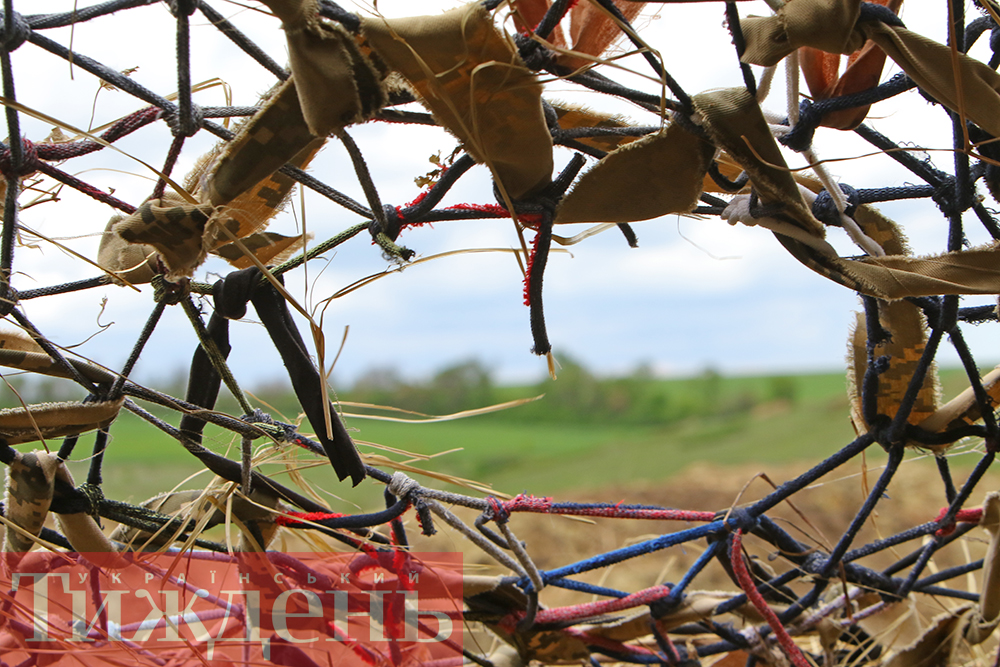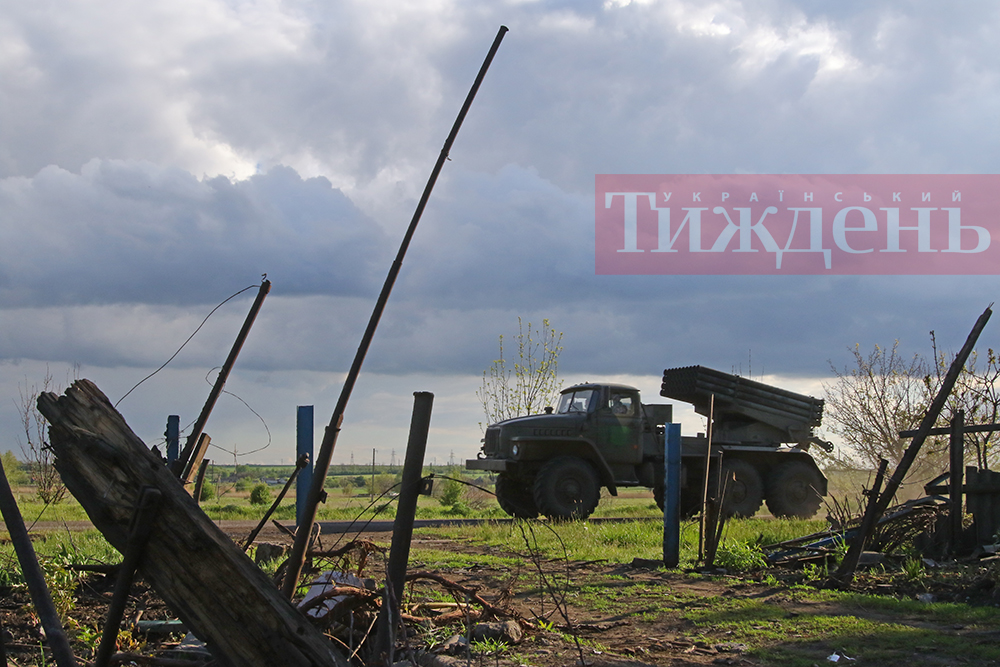– When did this war start for you?
– Back when there was the Maidan in 2014. I was fourteen then. I was already aware that the Maidan would not go for nothing. I understood that there would definitely be a war, the only question was when it would break out. Ukraine has been suffering from aggression for eight years. While I was young, this situation didn’t touch me much, but I saw that it was necessary to get prepared, because a full-scale war was inevitable. In 2016, I joined «Plast»…
– Did you join «Plast» to get prepared for war?
– I joined «Plast» purely for my own development. To understand how to live on, how to grow, what to strive for. For the sake of new acquaintances that could help me in my development. This was the main goal, and I generally achieved it with «Plast».
– Does «Plast» experience help today?
– The experience and knowledge that I gained during my «Plast» membership – which lasted about five years – help me a lot. Especially, when it comes to camping and outdoor survival. This is a very big advantage. Considering our tasks and the specifics of the work, I have been using almost eighty percent of what I learned with «Plast».
– So, the decision to go to war was not spontaneous, wasn’t it?
– For me, a full-scale war began in the evening of February 24, when I told my parents that I was going to Kyiv. I had a «Plast» camp on the same day. We evacuated the children from there, and at five o’clock I was already home. And at seven o’clock, an acquaintance called me (we are still here side by side) and said that there was an opportunity to go to Kyiv, because the huge bloody battle was starting there. I considered for an hour whether to go or not, but then I asked myself: what am I going to do if I don’t go now? I clearly understood that I couldn’t simply stay at home and would still look for other ways to get somewhere. I called him back that I was coming and started to pack my things. When I told my parents, my father tried to talk me out of it, he wanted to force me to stay. But my mother realized that if I had already made up my mind, I could not be stopped, and in the end they quietly let me leave. Already in the morning of February 25, I was in Kyiv.
– Did you know exactly where you were going?
– Well, yes. I knew where I was going, and I more or less knew those people and their ideological views. I had known half of them for more than one year: we crossed paths at various training, ideological events, I worked together with them on various projects, not only related to «Plast».
– Did you have any combat experience?
– I had had no combat experience before a full-scale invasion until we left for the first combat mission. I knew only the theory of tactics and the like. At one time, I paid a lot of attention to studying tactical and civilian medicine, attended many different training sessions and courses. It helped me much. During combat shakedown, I remembered everything. The movements were practiced almost to the point of automaticity and now came in handy.
Well, yes, some new skills, for example, handling NATO weapons, we mastered from scratch. But everyone was so set to, ready to learn, that they were extremely quick at grasping. And even sometimes it happened, especially among «Plast» members, when the instructors of the Armed Forces of Ukraine could not fully make heads or tails, we took the upper hand and surfed the internet in the evenings looking for manuals or functional capabilities and then turned into instructors ourselves and conducted training with the latest weapons, which had not been known to us before.
– Your first impression of a real fight? Didn’t you want to quit and run away?
– I always asked myself: if I and hundreds of other people, who also had not even done military service, but who voluntarily, without thinking, went to defend their country on February 24 with weapons in their hands – if we had not done this, where would the front line be today? My first combat experience was near Kyiv. We were looking for enemy columns, but ended up in a surrounded village. Then there were the first losses, the first «two hundredth» comrade (200th – military slang for KIA, «killed in action», 300th – for WIA, «wounded in action» – Ed.). There was fear, misunderstanding. But you have to get rid of fear because when in panic, you get confused and become an easy target.
– How to overcome panic?
– Everyone has their own way. But my answer is to practice all actions until automaticity. Because you don’t know when fear will come. You should clearly understand what to do, where and how, without even thinking. And you also need to realize that when you get scared and don’t do your part of the job, the comrade who is by your side will get under threat. And if you survive, he may not because you got scared, hid or ran away. This is what makes me leave fear behind, somewhere in the quarters. Because when you go on a combat mission, when you go to carry out orders, the priority is to do your job well. So that it will raise no questions later that you have done something wrong and someone has died because of you.
– So you and your brothers-in-arms are very interdependent on each other, aren’t you?
– Sure. The squad is small, and if we have two or three wounded, it is no longer capable of combatting. The squad is like an organism. Everyone should do their job well. If someone fails, then the whole body is sick.
– What tasks do you have to perform?
– During these six months we have had various tasks. Easy ones were those when you just had to reconnoitor the ground, fly a drone. More difficult ones were when we were among the first to cross a coastal lake. We had to advance behind enemy lines for 50 kilometers. We disembarked from boats, and it was March, cold, stormy. You get ashore soaked and don’t want to do anything else. And you still have a combat mission, and you have to fulfill it. And then stay there for three days and return back by the same route. In short, the tasks were varied: there were assaults, or you had to go somewhere and blow something up.
– And how to get through the front line?
– It’s elementary. The World War I was a trench war. Continuous trenches ran from one end of the front to the other, and still some scouts managed to walk through these lines of trenches and barbed wire. You just need to look for places that are not visible. Now we do not have neverending trenches from the North to the South of Ukraine. There are certain points where enemies are clustered, and there are gaps between those points. These gaps are usually mined. Sometimes they are not. So we are looking for such gaps that cannot be observed.
– If we go there, then they go here. So how successful is our countersabotage?
– Well, in the beginning, there were a lot of hostile sabotage groups. They were moving forward, trying to do something. Now they don’t go often. At least in the last four months I have not heard information that there have been any advances of subversive groups. At the same time, in some areas where we were, we did not even see traces of subversive groups. They just fear to cross our lines lately.
– What do you think about guerillas in the occupied territories?
– I think that there are a lot of people there who did not have time to leave and join the ranks of the Armed Forces. Or later they realized that it was enemy’s authority and started to do something. It seems to me that there are quite powerful centers of the guerilla movement there.
– If you had the opportunity to choose where to serve again, would you like to choose something less risky, say artillery?
– When I went to war, I did not think at all that I would get here and be with these people. I was brought here by accident. And if there was an opportunity to try something else, maybe I would. Only for a short time. I think I don’t want to completely give up what I’m doing now.
– Who are these people you are with?
– During these six months, the people around me have changed more than once. Of those who have been from the beginning, only two have remained. In general, I am surrounded by different people. There are those who in time of peace have never even held a machine gun: managers, tourists, cooks, builders. People of different ages. I am the youngest in the squad. Each member has had something that makes him special, something in the background, had it even before the war. But during combat shakedown we turn the page and write our new story. Not recalling what was before, but demonstrating what we are capable of today, while performing tasks.
– What traits are necessary for a person to become one of you?
– Probably, first of all, it is the desire to defend our country with weapons in hand. It’s not as simple as in the case with many of those who just came to enroll in the squads of territorial defense or Armed Forces of Ukraine and stay on training grounds, but you should really be prepared that you will get under fire for sure. And be ready to meet death. Not in person, because when you are killed, you will not feel it. The most important thing is to be ready for the loss of brothers-in-arms. When you see a comrade get killed in front of your eyes, and you can’t help him in any way, it’s extremely hard to endure. Because if you get hurt, it will hurt, there will be panic, but you will stay alive. And when you see your comrade being torn apart, it’s the hardest thing. Psychological readiness for the loss of close people – I think this is one of the most important features not only for us, but also for any other combat squad.
– What motivates you?
– We went to war, I think all the guys will agree with me, for the sake of those who are waiting at home: parents, children, wives, sisters, beloved. When you knew even before the war from History lessons how the Soviet government treated Ukrainians, when you know how the Russian government treats us now, then you naturally do not want to let this evil come to your village and your loved ones see it. Therefore, most guys are motivated precisely to prevent this from entering their home. I’d rather go somewhere far from my place and defend my Motherland there. For me, this war is about protecting my home, my family. And also about protecting our people, our Motherland, protecting our freedom.
– Has the war changed you?
– Sure. It changed a lot. I feel the meaning of life in a different way. If I used to underestimate certain moments before, now I realize that every moment of life is important. It leaves a certain mark behind. These moments are just very memorable.
– What will you do after the war? Will you stay in the army?
– It is correct to say not «after the war», but «after the Victory». Because war is such a concept. It can last a very long time. To be honest, I don’t even know what I’m going to do. For now, I have Victory in my plans, and then we will see. I have enough ideas on how to develop and where to move. There are enough of them to draw up a plan of what to do in half a day.

